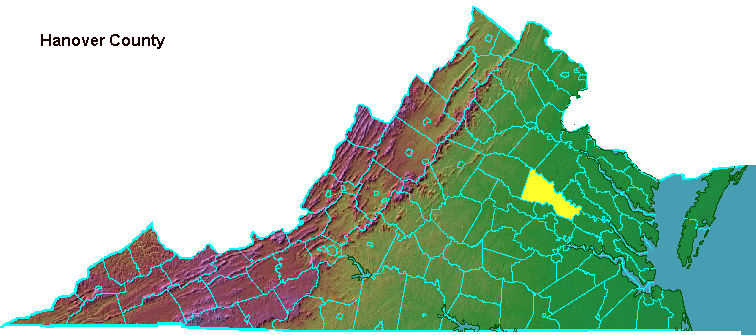

Hanover County was named in 1720 after King George I, who had been King of Hanover (a medium-sized German state) before also accepting the throne of England after Queen Anne died.
The 1700 Act of Settlement prohibited the king from travelling abroad without approval from Parliament. This was repealed quickly after George I assumed the throne and he had defeated the invasion of Scotland by the Stuart "Pretender", the son of James II, in 1715. When George I did travel to Hanover, his English ministers accompanied him and government operations remained centered on the king.
The King's connection to Hanover limited the flexibility of English foreign policy. England in the 1700's was competing with other European countries for trade and creation of new colonies. On the seas, England's merchant shipping and navy were gaining rapidly in power. France and Spain had colonies in the New World that were ripe for the plucking. Parliament hated the taxes required to support a standing army, however, and war in the New World might trigger war on the continent that would threaten the safety of Hanover.
The peace that prevailed in Europe from 1713 to 1739 was seen by many as cowardly. One observer (J. H. Plumb in The First Four Georges) states "Perhaps the most obvious but least recognized feature of English life in the eighteenth and early nineteenth century was its love of aggression... To vast numbers of eighteenth-century Englishmen wars were welcome; golden opportunities to beggar their neighbors, to seize the wealth of the world and to demonstrate the contempt in which the nation held those Pope-ridden, frog-eating, puny, wooden-shoed slaves, the French."
One way the Prince of Wales irritated his father, George I, was to emphasize a personal focus on England instead of Hanover. Once the prince became King George II, however, he experienced a new appreciation for the German state where he was able to rule unhampered by a Parliament. A vice-chamberlain in his court recorded in his memoirs that "In truth, he [George II] hated the English, looked upon them all as king-killers and republicans, grudged them their riches as well as their liberty, thought them all overpaid..."
And turnabout is fair play. George II's son, the new Prince of Wales, irritated his parents (King George II and Queen Caroline) by emphasizing his personal priority for England...
These family feuds actually contributed to the growth of democracy in England. The ministers and Parliament gained new authority when King George I quit attending personally the weekly meetings of his cabinet councils. George I knew French well, and that was the official language of diplomacy in the 1700's, but the Prince of Wales had helped translate for his father the conversations that occurred in English during cabinet discussions.
After a family fight in 1717, King George I did not want to see his son and banished him from the palace. Cabinet ministers then began to resolve political differences in private meetings without any royal presence, before then presenting official proposals to the king for approval.
Along with King George and Spotsylvania, the formation of Hanover reflected the shift of settlement towards to uplands beyond the Fall Line. Governor Spotswood personally sought to increase the population in these area, and they grew rapidly in contrast to other regions. However, after 1830 there would be a significant migration of settlers from the Hanover region into Southside Virginia, including Lunenburg County.
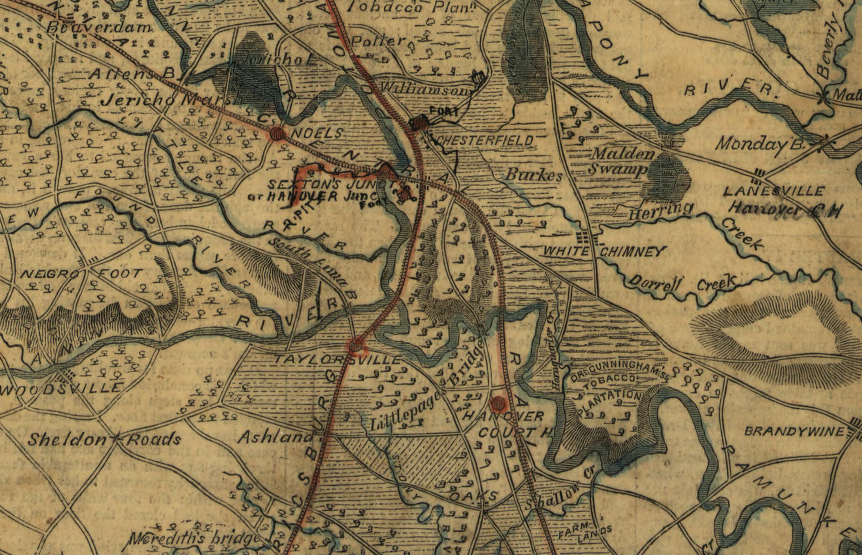
Hanover Junction, where the Virginia Central and Richmond, Fredericksburg, and Potomac railroads crossed, is now known as Doswell
Source: Library of Congress, Map showing from Richmond to Fredericksburg, VA
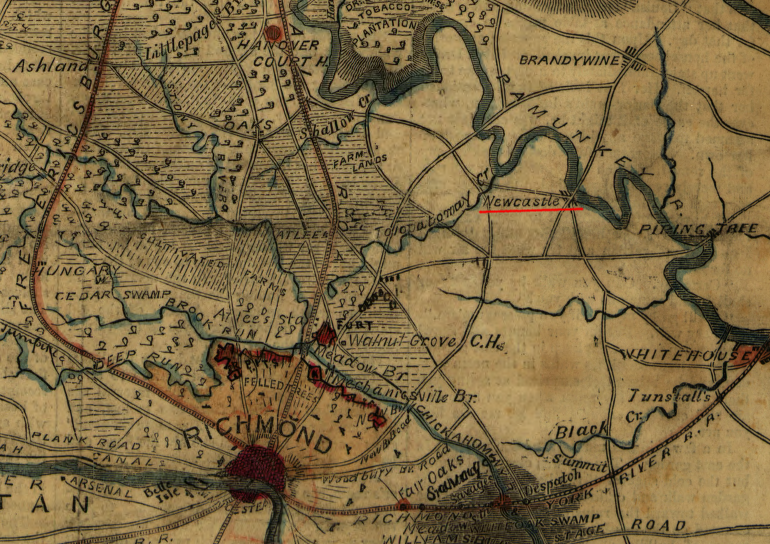
Newcastle on the Pamunkey River was considered as a potential site for replacing Williamsburg as the state capital
Source: Library of Congress, Map showing from Richmond to Fredericksburg, Va (Robert Knox Sneden, 1864-65)
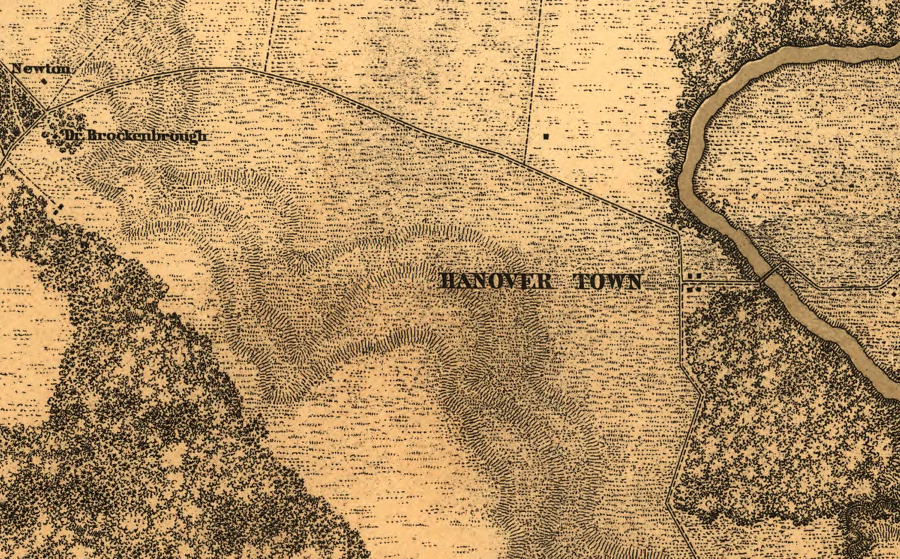
Hanover Town on the Pamunkey River in 1864
Source: Library of Congress, Totopotomoy (1864)
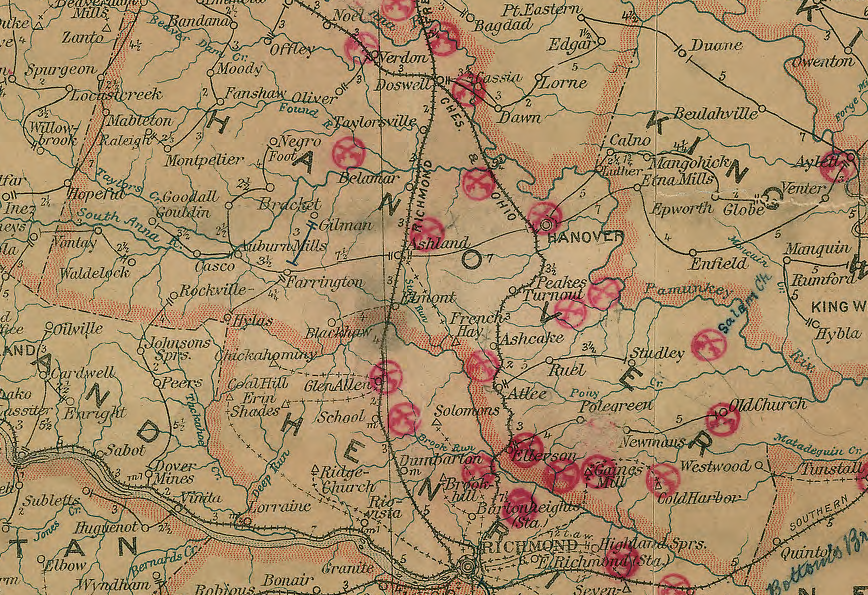
in 1906, two railroads connected Doswell with Richmond
Source: Library of Congress, Post route map of the states of Virginia and West Virginia (Postmaster General, 1906)
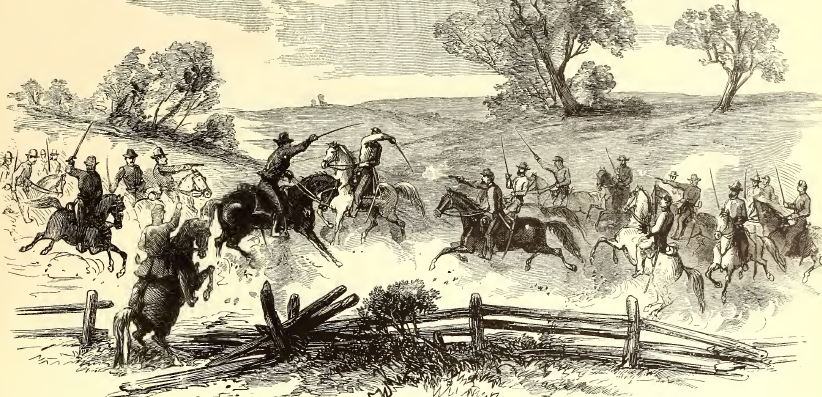
the death of Confederate Captain Latane at Old Church, during Stuart's ride around McClellan, was commemorated in a painting that came to symbolize the Lost Cause
Source: Frank Leslie's Illustrated History of the Civil War, Desperate Skirmish at Old Church, Near Tunstalls Station, VA, Between a Squadron of the Fifth United States Cavalry and Stuart's Confederate Cavalry, June 13th, 1862 - Death of the Confederate Captain Latane (p.165)
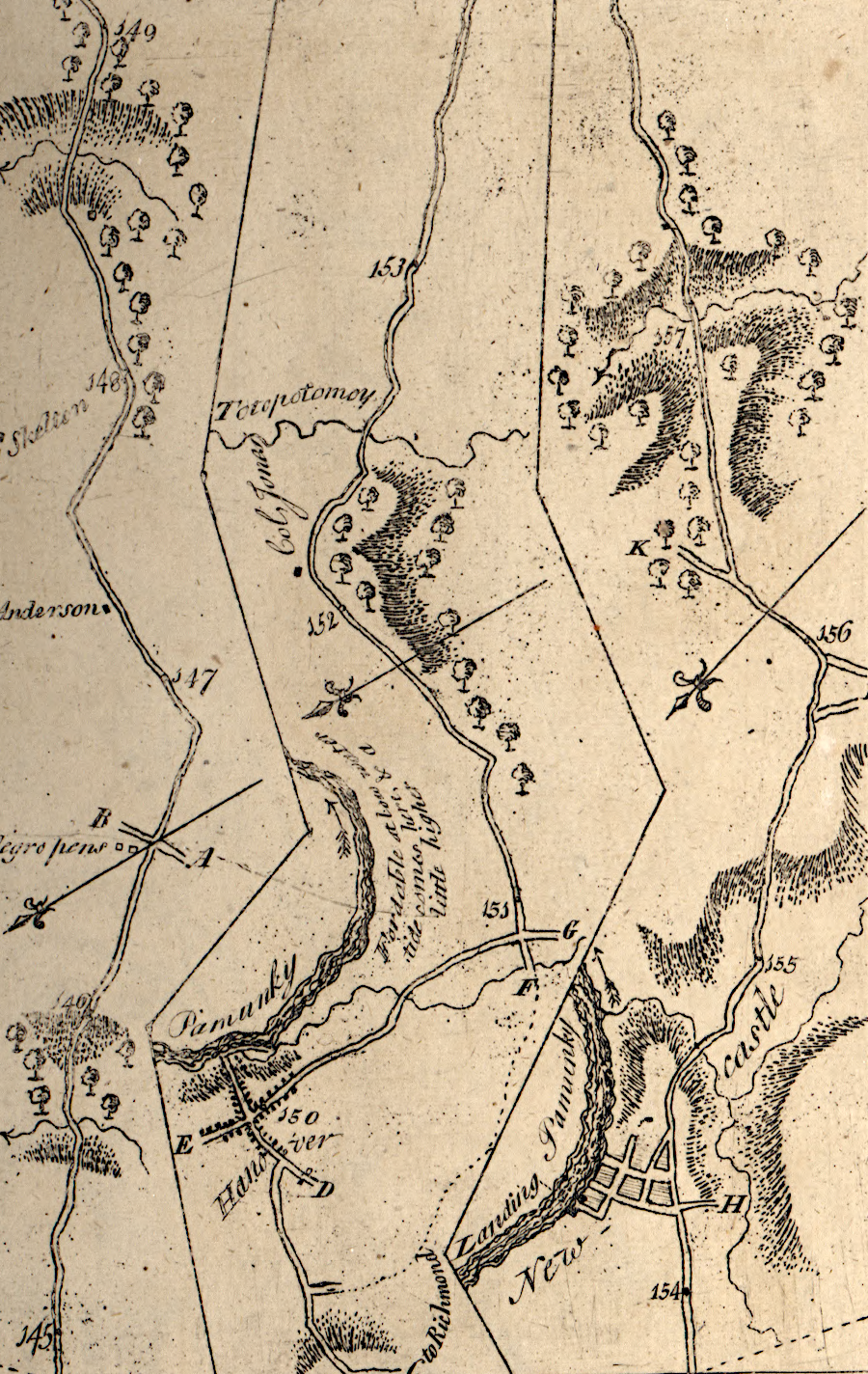
in 1789, Newcastle was a significant stop between Fredericksburg and Williamsburg
Source: Library of Congress, A survey of the roads of the United States of America (Christopher Colles, 1789)